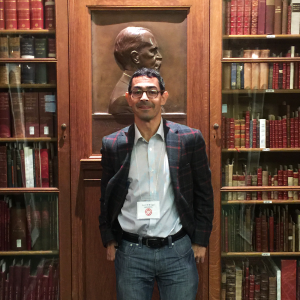Takeaway
As you watch lots of “The Beautiful Game” this month, there are lessons for healthcare professionals. All members of our teams are important and diversity drives success.

Lifelong Learning in Clinical Excellence | December 1, 2022 | 1 min read
By Scott Wright, MD, Johns Hopkins Medicine
Healthcare and soccer/football are both found all over world. The World Cup is a terrific tournament (FIFA not withstanding) that draws interest and passion from far and wide. In watching many fantastic matches, the following ideas came to mind about what we can learn from soccer:
Everyone on the team is important.
Soccer is a “weak link” sport. It’s often the 8th, 9th, 10th ,or 11th best players on the team who determine the result (note: 11 players are on the pitch working together). The weakest players on your team need to be stronger than the opposing team’s weakest players.
One mistake (an errant pass or an uncalled-for foul) can often determine the outcome of the match. This premise emphasizes the importance of consistency and that all team members be strong.
We need to train and coach each other so everyone on the team is growing to be the best that they can be.
Patience.
In both soccer and healthcare, things take time to come together. Many passes must usually be strung together to move the ball up the field to culminate in a goal. Similarly, in medicine, it can take several tests to arrive at the definitive diagnosis or multiple attempts with different therapeutics to reach the desired outcomes.
Diverse teams are best.
Great soccer teams are a collection of individuals with varied talents. The same is true of healthcare teams. Embracing diversity and allowing each person to contribute their strengths will ultimately help in the service of our patients.
Keep the faith.
In this World Cup tournament, there have been many unexpected results or upsets. A recurrent cheer by American fans is “I believe that we will win.” In medicine, we need to help patients to find the right amount of hope and encourage them to believe that they can achieve their healthcare goals.
This piece expresses the views solely of the author. It does not necessarily represent the views of any organization, including Johns Hopkins Medicine.

